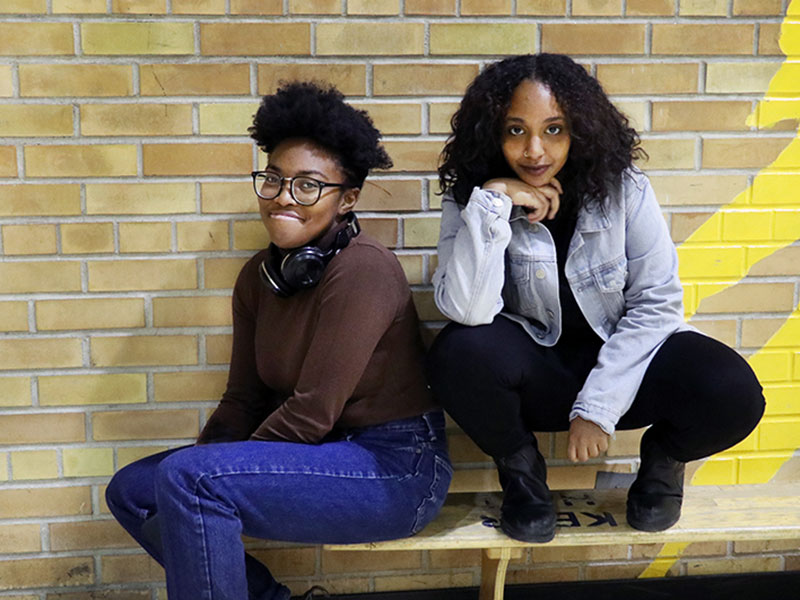Executive Summary

- Letter from President Dr. Mohamed Lachemi
- Foreword from Vice-President, Equity and Community Inclusion Dr. Denise O’Neil Green
- Executive Summary
- Interview Methodology
- The Student Experience and Recommendations
- Staff and Recommendations
- Faculty and Recommendations
- Office of the Vice-President, Equity and Community Inclusion
- Conclusion

"Anti-Black racism continues to be a problem on college and university campuses across Canada, and TMU is no exception despite our continued efforts to improve the situation for Black students, faculty and staff."
Nearly 10 years ago, an (PDF file) Anti-Racism Task Force at Toronto Metropolitan University released a report that examined systemic racial issues and barriers on campus while laying out recommendations for change. Of the 59 sub-recommendations, 52 have been put into practice or are currently in development following the release of that report. More recently, though, the student-run Black Liberation Collective - TMU raised new concerns regarding the prevalence of anti-Black racism on campus. To better understand the experiences of Black students, faculty and staff on campus and the impact of these experiences— and as the 10th anniversary of the initial Anti-Racism Task Force report approached—Toronto Metropolitan University launched a new Anti-Black Racism Campus Climate Review in 2019.
(Photo by Selasi Dorkenoo)

Ultimately, this report revealed that we have more work to do in ensuring Black students, faculty and staff—individuals who clearly expressed loyalty and commitment to TMU throughout their interviews—feel equal, safe and welcome on campus. The following summarizes findings from the focus groups and one-on-one interviews held with students, faculty and staff who identify as Black over the course of four months, March to June 2019.
Anti-Black Racism
There are various forms of anti-Black racism and bias, all of which can be seriously damaging to individuals and impact their participation in the TMU community. The experience of racism encountered by the participants was largely based on being identified as Black people by other people who were not Black. Anti-Black racism as a practice is one in which Black people are singled out first based on skin colour and treated differently in a disadvantageous fashion. In institutions like universities, anti-Black racism is experienced as systemic exclusion of Black people; making Black people feel out of place, diminishing and excluding specific references to them, producing demeaning and distorting ideas and images of them. Experience also includes a lack of representation across all areas of the institution, the use of racist language and hostility, and a range of other modes and practices both subtle and overt that send the message that Black people are neither a priority nor fully welcome on the same or equal terms with others. Some or all of these conditions can combine to produce the negative effects of anti-Black racism.
Students
The majority of students interviewed had specific stories of experiencing anti-Black racism on campus, in their classrooms and elsewhere. From lack of representation, to experiencing hostility, to a sense of not belonging to the larger TMU community, Black students articulated an experience that requires redress. Black students reported a set of complex and complicated responses to their experience of anti-Black racism at TMU that they understood to place them at a marked disadvantage in the institution. The broad spectrum of issues articulated involved: a sense of not belonging; lack of representation in the curriculum; safety moving around the campus; underrepresentation of Black faculty; issues with mentorship and problems with front-facing services like Student Life, Student Affairs, Counselling Services, the Human Rights Office, Security Services, etc. Black students made it clear that anti-Black racism is a feature of their experience at TMU and they want it to change in a positive way.
Staff
Black staff are adamant that anti-Black racism is a defining feature of their work life at the university. They articulated everything from banal day-to-day racism to larger and more systemic issues like compensation disparities, moving up the ranks based on years of service, being passed over for promotions and remaining on contracts or “term positions” much longer than their colleagues. In summary, Black staff interviewed made it clear that practices of nepotism, exclusion from friendship circles and a failure to see them as viable for advanced positions are all significant features of their work life at TMU. Despite this, Black staff remain loyal to TMU but often felt that the loyalty was not returned to them.
Faculty
The underrepresentation of Black faculty at TMU is not outside the norm among post-secondary institutions in Canada. Black faculty find themselves isolated in their departments and programs, whether they are tenured or pre-tenure, or they are contract, part-time and sessional faculty. They also find themselves burdened in a number of ways that are unique to them. Chief among this is the mentorship of Black students, which requires a serious time commitment and often has them working beyond their areas of specialization and teaching. Black faculty interviewed also reported being greeted with suspicions about their expertise from both colleagues and non-Black students, reporting the workplace as a hostile environment.
Recommendations
Anti-Black racism can be interrupted by good policy, clear lines of reporting and focused interventions, along with a rigorous commitment to equity, diversity and inclusion that is sustained and clearly visible in its implementation. The recommendations outlined in this report can work to build upon TMU’s pioneering efforts among post-secondary institutions in Canada to create a more inclusive environment that encourages the full participation of all university members.